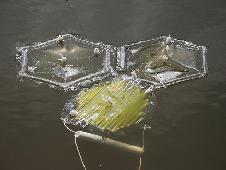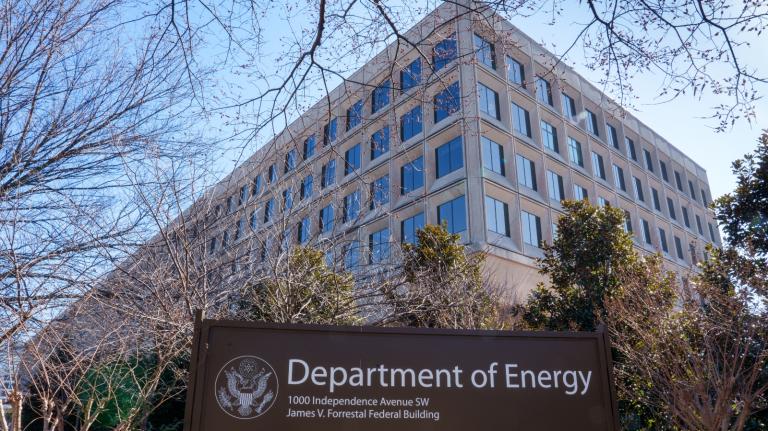Forget offshore oil drilling. NASA’s working on a project that would generate clean, renewable offshore energy, by growing algae in floating plastic bags.
These floating algae farms would take in wastewater from treatment plants. For algae, wastewater is like the nectar of the gods: The ammonia and phosphates act as a fertilizer. So the algae would float happily contained in the baggies, getting fat with lipid oil, and cleaning up the wastewater in the process. Eventually, the algae farmers would harvest the oil, recycle the plastic and start all over again.
There are a few benefits to this fuel system. It takes less land then algae farms, it recycles wastewater, and it avoids the energy-intensive cooling and the problems with evaporation that open algae ponds have to deal with. And if these offshore energy sources spilled, the algae shouldn’t cause too much harm. The plastic bags might be expensive to replace, but the algae would die quickly in the saltwater.
But the system does require a lot of plastic — about two square miles to create 2.4 million gallons of algae oil per year. According to Technology Review, the NASA researchers who came up with the idea aren’t totally sure what they’d do with all that algae-covered plastic after they were done using. Imagine miles and miles of mildewy shower curtains and you get some idea of the issue.
Still, there’s nothing new about having too many plastic bags and no perfect way to dispose of them. But right now they mainly hang around in trees bothering Liz Lemon, when they could be generating renewable fuel.



